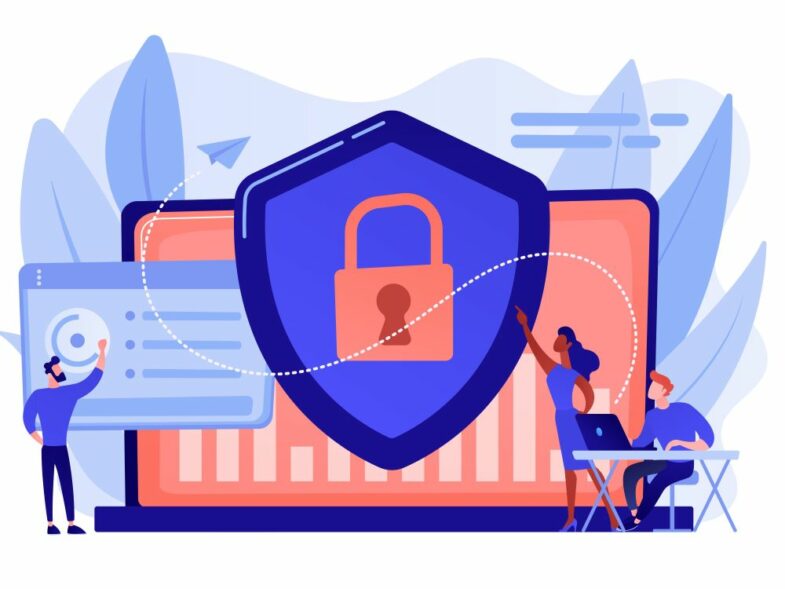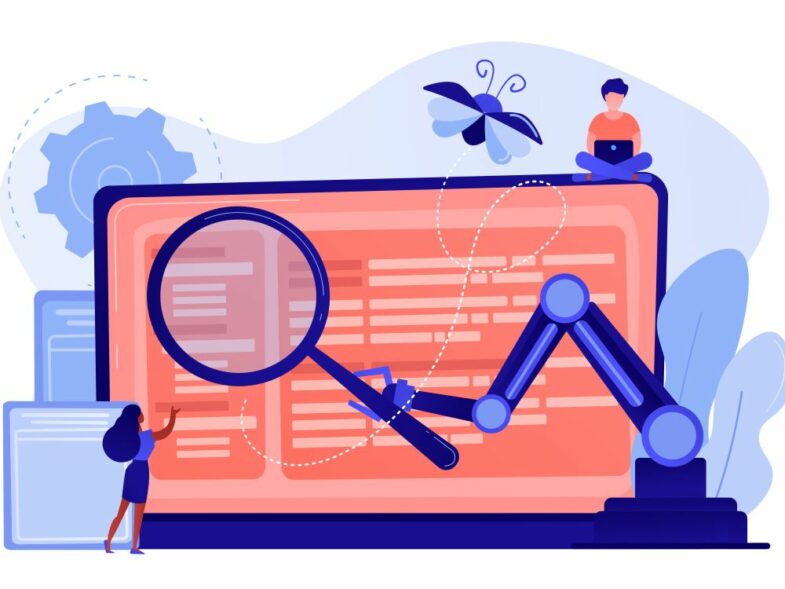Many people think cybersecurity is not for them. It’s something only big companies and people who work in closed organizations need. That it requires entire IT departments and expensive tools. But it’s not.
Whether you’re a small company of a couple people, or you’re a freelancer, you still need the right approach to your online security. Let me tell you more, small startups and businesses are attacked more often. Because they often forget to protect themselves and have limited resources.
According to Verizon’s 2023 report, more than 43% of cyberattacks target small businesses.
So the threats are real and only getting more dangerous over time. But there is a positive side. You don’t need colossal budgets to start developing your strategy. You just need to know where to start.
And today we’re going to tell you.
Understand Risks
The first thing you need to do is assess the risks. And figure out what you can be attacked with. And first you need to ask yourself some important questions:
What data do we store (customer info, financial records, employee data)?
This will give an understanding of how important information you hold and how much leaking it could damage you or your reputation.
Where is this data stored (local servers, cloud platforms, devices)?
You will understand how storage locations can be protected locally and how, in theory, they can be infiltrated by attackers.
Who has access to it?
It is best to limit who has access to important information within your company. You should only give access to people who need this information for their work.
What systems are essential to running our business?
This will help you understand what you need to protect first.
These are basic questions, and by answering them, you can begin to understand what and where you need to bolster your defense and what kind of strategy you need to create.
Educate Your Workers
Your rank-and-file employees are your biggest vulnerability. They are the ones who are always the first to encounter hacking attempts and dangers. And teaching these people how to react to and recognize the dangers is vital to your safety.
Teach them ways to open suspicious messages. Teach how to set strong passwords that don’t contain personal information. Teach them to avoid using public Wi-Fi without a VPN. And most importantly to report strange activity immediately.
Update Your Software
It is very important for you to keep your software up to date. After all, the newer the version, the more dangers it can save you from. It is through older versions of applications that criminals often get inside the system.
This rule applies to everything from the operating system to antivirus software.
We advise you to enable automatic application updates and uninstall any programs you don’t need at the moment. They can be a problem too.
Back Up Your Data
Another habit that can help save your data and business.
Attacks come in different types, and one of them is Ransomware. They block access to your files. And then the hackers start either blackmailing you or extorting money to unlock it.
But if you have a copy, then such attacks won’t do you any harm. You just need to make copies regularly and then you don’t have to worry about this issue.
Network Security
Your office Wi-Fi network is the main tool for your entire team to get online. You need to keep an eye on it, because it can be an entry point for hackers.
Make sure you have a strong password and network encryption (WPA3 or WPA2) enabled. This will create basic network security. But it is better to use additional tools that will give you another strong ball of protection.
We also recommend a guest network for visitors, which will work separately from the main network. This will help to avoid random people accessing your network.
Limit Data Access
It’s important not to give access to important data to just anyone. You need to learn how to limit this process.
If your employee doesn’t need access to a database for work, it’s better to limit their access to it.
And so you should do with everything. This will greatly reduce the risk of your information going where it doesn’t need to go.
Antivirus Protection
Well, of course, have your antivirus in-house that is installed on all devices. It is desirable to have some kind of custom solution, but not all companies and startups can afford it.
Therefore, you can buy a plan of a popular antivirus. This will help protect the company’s devices from basic hacking or a common computer worm.
These basic rules that we have listed above will help you create a basic layer of protection around your business. Of course, you can then upgrade it and get more and more secure, but this is the base without which nothing will work.









